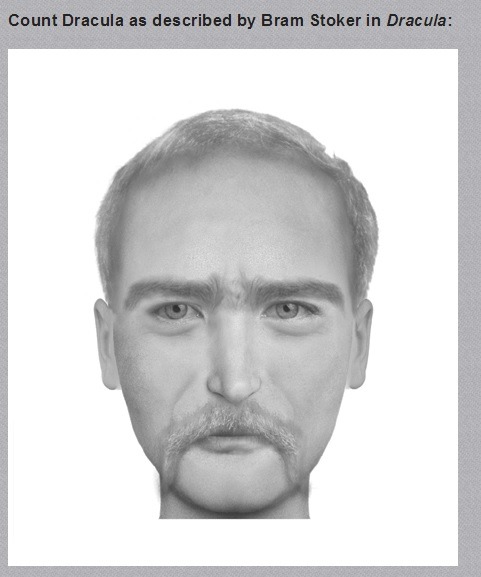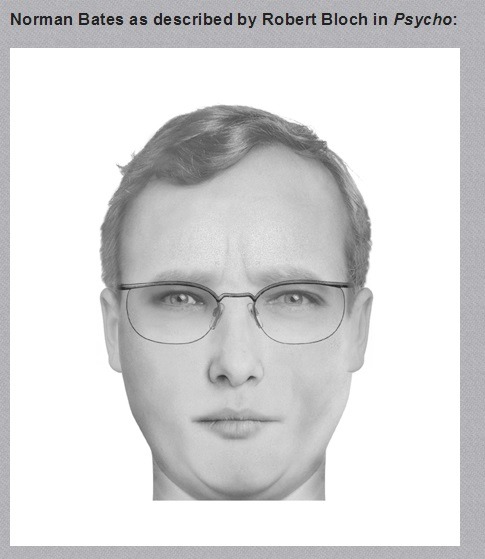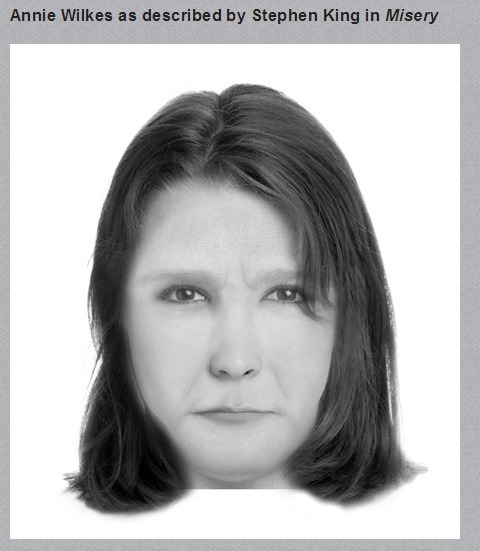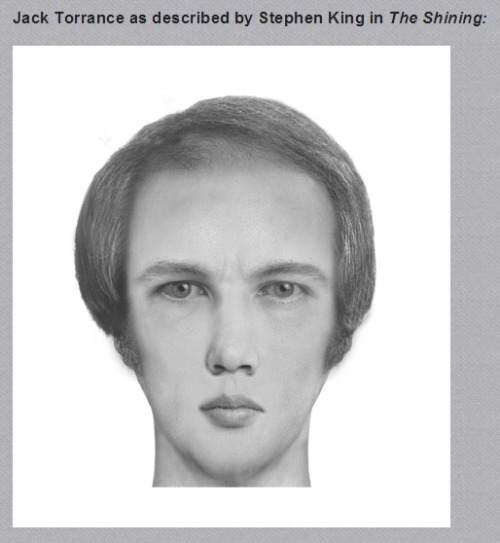We’ve told you about forensic psychology, what the career entails and what the salary is. We also have several other articles about tangentially related fields, and news, and of course, if you have any questions, you can always send them to us. But now, we will focus on the Universities from the United Kingdom which offer forensic psychology masters; we’ll try to constantly update this list, but it’s almost impossible to cover everything – if you have, or know about a program that we missed out on, please send a message to us and we’ll update this list right away. The Universities are presented in no particular order:
University: University of Surrey
Duration: Full-time: 12 months, Part-time: 24 months
Masters Fees: UK/EU- £6400 Full Time, £3200 Part Time. Overseas- £12460 FT
Program link:
Program information: Forensic psychology examines psychological theories, methods and processes within the context of the legal, criminal and civil justice systems. The programme features 9 compulsory modules, relating to the evelopments within the British Psychological Society’s Division of Forensic Psychology (DFP):
-Research and Practice in Forensic Psychology
-Psychology and Criminal Behaviour
-Aspects of the Investigative Process
-The Legal Process
-Violent and Sexual Offending
-Preparation for Academic Research in Psychology
-Quantitative Research Methods
-Qualitative Research Methods
-Dissertation
Other useful information: This accredited programme encourages students to conduct research of their own, for which they may receive a funding between £500 to £6,000. This is mutually beneficial to both the student and sponsor, and allows the student to undertake a ‘real’ piece of research that has practical or policy implications, whilst receiving a sum of money to help fund the masters.
University: University of Birmingham
Duration: Full time: 12 months. Part time: 24 months
Masters Fees: trimis mail
Program link:
Program information: The MSc Forensic Psychology offers an exciting opportunity for students to combine knowledge of psychological theory with the development of practical skills and an understanding of professional practice in forensic psychology.
Other useful information: The programme was accredited by the British Psychological Society for all intakes from 2010/11. It only requires 2 days / week of on campus activity for the full time option plus directed self learning, and one day / week for the part time option.
University: University of Coventry
Duration: 12 months, full time only
Masters Fees: £5,221 for UK/EU, £10,378 for International students
Program link:
Program information: It features 11 modules:
– Psychology and Criminal Behaviour
– Psychology in the Criminal Justice System
– Treatment of Offenders and Victims
– Applied Police Psychology
– Sexual and Violent Crime
– Risk Assessment and Management of Offenders
– The English Legal Process
– Practice and Application in Forensic Psychology
– Advanced Quantitative Research Methods
– Advanced Qualitative Research Methods
– Study Skills, Project Planning & Ethics
Other useful information: The programme is accredited by the British Psychological Society as fulfilling the requirements of Stage 1 towards becoming a Chartered Psychologist and Full Membership of the Division of Forensic Psychology with the British Psychological Society and a Forensic Psychologist registered with the Health & Care Professions Council (HCPC) (UK).
University: Manchester Metropolitan University
Duration: Full time: 12 months. Part time: up to 36 months.
Masters Fees: Full-time UK students: £4,700. UK and EU students: £780 per 30 credits · Full-time non-EU overseas students £12,500; a Masters qualification typically comprises 180 credits
Program link:
Program information: This programme is specifically designed to meet the criteria of the British Psychological Society (BPS) Division of Forensic Psychology Training Committee. Course modules are:
– Ability Assessment
– Dissertation
– Eye Witness Testimony
– Foundations of Forensic Practice
– Introduction to Forensic Psychology
– Introduction to Investigative Psychology
– Personal and Professional Development
– Psychology and Law
– Psychology within Clinical Forensic Practice
– Qualitative Methods in Psychology
– Quantitative Methods in Psychology
– Understanding Criminal Victimisation
– Youth Crime and Youth Justice
The programme also offers electives.
Other useful information: There are relatively many overseas participants to this program, some of which have taken up academic and practitioner positions in their own countries.
University: Middlesex University London
Duration: 12 months full time, usually 24 months for part time
Masters Fees: UK/EU students: £6,000 per year full time. International students: £11,000 per year full time
Program link:
Program information: The programme is constructed of two core modules covering, in turn, contemporary criminological theory, methods, issues and debates and psychological approaches towards the causes and management of offending behaviour. There is also a focus on forensic psychology – but that’s not the only focus of the masters. Students have to choose two optional modules, focusing on areas of special interest including institutions of criminal justice, community safety, drugs, youth and adult offending and comparative perspectives on each of these areas.
Other useful information: Full-time students attend formal on-campus teaching up to two days a week; part-time students one day a week.
University: University of Gloucestershire
Duration: 12 months, full time only.
Masters Fees: EU/UK students: £4860. International students: £10750
Program link:
Program information: The programme emphasises the importance of practitioner skills, providing training in project management and business skills needed for professional practice, including consultancy. The course typical modules include:
– Psychology, Investigation and the Legal Process
– Offenders: Causes, Assessment and Treatment
– Issues in Sexual Offending
– Professional Skills
– The Practitioner Consultant
– Advanced Research Methods
– Dissertation
Other useful information: There is a significant focus on sexual offending. Most carreer paths go on prison Service, special hospitals, secure units/settings and academic/research.
University: University of Bedfordshire
Duration: 12 months, with options available for part-time day studies
Masters Fees: Full time – UK/EU students: £4,500. International students: £9,000. Part time – UK/EU students £9,000.
Program link:
Program information: The course has an employability-focused curriculum that incorporates the team’s research expertise and supports the requirements of the BPS, Division of Forensic Psychology. The course covers main topics and advanced training in Research Methods and Professional Skills. Typical modules are:
• Criminological and psychological approaches to crime and patterns of crime
• Offender profiling
• Forensic psychology in the courtroom
• The treatment and assessment of offenders
• Violent and sexual offenders
• Young offenders
• Working with offenders with mental disorder
Other useful information: The MSc Forensic Psychology is not yet accredited! It is to be accredited by the British Psychological Society (BPS) Division of Forensic Psychology. It is only available to those able to demonstrate the Graduate Basis for Chartered Status with the BPS.
University: University of Portsmouth
Duration: 12 months full time, 24 months part time
Masters Fees: UK/EU students: £6,000. International students: £12,500,
Program link:
Program information: Accredited by the BPS.
Other useful information: They claim to have the largest group of actively researching academics at the cutting edge of forensic psychology research in the UK.
University: University of York
Duration: 12 months full time, 24 months part time.
Masters Fees: EU/UK students: £7,440. International students: £19,360.
Program link:
Program information: Feedback from employers indicates they are consistently impressed with the ability of York graduates to apply theory to practice and this is reflected in the destinations of many of our recent graduates. Main modules are:
– Forensic Psychology in Practice
– Research Design and Statistics
– Legal and Contextual issues
– Forensic and Generic Skills
– Forensic Psychology in Practice
– Additional Research Methods
– Forensic Mental Health
– Transferable Skills
Other useful information: To complement their studies, many students are able to organise voluntary placements in forensic settings. The course team is sometimes able to help secure placements for full-time and part-time students who have little or no forensic experience.
University: Cardiff Metropolitan University
Duration: 12 months full time, 24 months part time
Masters Fees:
Program link:
Program information: The programme looks at the role of environmental, psychosocial, and socio-cultural factors that may contribute to crime or its prevention. This programme is the only BPS (British Psychological Society) accredited programme in Wales. Typical modules:
– Research Methods and Design
– Forensic Mental Health
– Professional Practice and Offender Management
– Psychological Assessments and Interventions
– Theories of Criminal Behaviour
– Legal Psychology
– Psychological Vulnerabilities
Other useful information: The Cardiff University also offers a – a PgD. There are 5 modules to the PgD:
• Professional Portfolio in Forensic Psychology
• Consultancy
• Teaching and Training
• Ethical and Professional Practice
• Functional Assessment and Formulation
University: London Metropolitan University
Duration: 12 months full time, 24 months part time
Masters Fees: EU/UK students: £7,470. International students: £10,215.
Program link: Forensic Psychology MSc.
Program information: The course consists of six core modules, an option or designate module and a substantial empirical research project (equivalent to three modules). The main areas of study are:
– Professional Context and Practice of Forensic Psychology
– Psychology and Criminal Behaviour
– The Investigation and Prosecution of Criminal Offences
– Research Issues and Advanced Data Analysis
– Assessment and Intervention Theory
– Applied Assessment and Intervention
Other useful information: A key feature of the course is that it allows students to select from a range of applied option modules. These offer students the chance to reflect upon the practice of forensic psychology in a range of occupational settings. Optional modules are:
– Applied Legal Psychology
– Psychology and the Penal System
– Psychology and Sexual Violence
– Psychology and the Sexual Exploitation of Children and Young People
– International Perspectives in Forensic Psychology
University: King’s College London
Duration: 12 months full time only
Masters Fees: EU/UK students: £7,900. International Students: £22,000
Program link:
Program information: Flexible postgraduate programme for students with a professional &/or academic interest in the complex relationship between mental disorders and criminal behaviour, taught by a multi-disciplinary team of clinical academics. The core of the program is pro-social and anti-social behaviour across the lifespan and risk management, treatment and services for mentally disordered persons. Optional modules are:
-Research Methodology & Statistics A & B
– Psychology of the Legal & Investigative Process
– Forensic Psychology Practice (Clinical Forensic Psychology Pathway only)
– Introduction to Forensic Psychology Practice
– Structured Professional Risk Assessment and Management
– Criminal Justice Mental Health
– Mental Health Law
– Forensic Aspects of Intellectual Disability
Other useful information: Accredited by the British Psychological Society Division of Forensic Psychology
University: Nottingham Trent University
Duration: 12 months full time, 24 months part time
Masters Fees: EU/UK students: £5,350. International studetns: £12,000
Program link:
Program information:
Main modules are:
– Explanations of Crime, Criminal Behaviour and Victimology
– Police, Justice System and Psychology
– Professional Forensic Practice
– Advanced Experimentation & Statistics
– Qualitative Research Design & Analysis 1
– Assessment, Formulation and Treatment of Offenders and Victims
– Punishment, Rehabilitation and Aftercare
– Mixed Methods
Other useful information: It is accredited by the British Psychological Society. They also have state of the art laboratory suites ensuring students have access to the latest equipment and software as well as specialist laboratories dedicated to particular areas of interest in Psychology.
University: Sheffield Hallam University
Duration: 12 months full time, 24 months part time.
Masters Fees: EU/UK students: £6,000. International students: £11,250.
Program link:
Program information: In comparison to most accredited courses, this course contains much more training in criminal law and its applications. They focus more on applying psychology to criminal investigations, rather than assessing and treating offenders.
Other useful information: You will take part in a police simulation, which involves working in small teams to investigate a series of criminal cases and applying psychology to this caseload. You also take part in a simulated court case with students from other related areas, such as forensic science and forensic accounting. You’ll work on the case throughout the year.
University: University of Kent
Duration: 12 months full time, 24 months part time.
Masters Fees: EU/UK students: £6,375. International students: £11,625.
Program link:
Program information: The MSc programme is composed of 6 compulsory modules:
– Advanced Statistics and Methodology
– Psychology of Criminal Conduct
– Psychology of Law and Justice
– Assessment and Treatment of Offenders in Forensic Settings
– Forensic Cognition: Theory, Research and Practice
– Research Project in Forensic Psychology
Other useful information: The MSc in Forensic Psychology at Kent is accredited by The British Psychological Society as providing the first (academic) year of professional training for those who wish to qualify as Chartered Forensic Psychologists. However, only students who gain a mark of 40% or above in every module, with an overall mark of at least 50%, are eligible for accreditation by the British Psychological Society.
University: University of Manchester
Duration: 12 months full time, 36 months part time.
Masters Fees: EU/UK students: £6,300. International students: £18,000.
Program link:
Program information: The program has been designed to be flexible, to enable students to balance academic work with workplace demands. Full time modules are:
– Introduction to forensic mental health and offending behaviour
– Introduction to Forensic Psychology
– Research methods
– Overview of mental health legislation
– Personality disorder assessment and intervention
– Clinical risk assessment, formulation and management
– Psychology applied to the process of investigation (eyewitness testimony)
– Psychosocial Interventions for individuals with complex mental health needs
Other useful information: Part time courses only require one day/week on campus.
University: University of Central Lancashire
Duration: 12 months full time, 24 months part time.
Masters Fees: EU/UK students: £5000. International students: £11,450.
Program link:
Program information: The MSc Forensic Psychology course provides a strong emphasis on the application of Forensic Psychology in professional practice, and practising Chartered Forensic psychologists are employed by the School to lecture on the course. The courses are:
– Advanced Methods in Psychology 1 (full- and part-time)
– Psychology and the Legal System
– Personal Attributes of Offenders and Victims
– Forensic Risk Assessment (full- and part-time)
– Advanced Methods in Psychology 2 (full- and part-time)
– Professional Practice: Forensic Consultancy and Supervision
– Psychology, Investigation and the Courtroom (full- and part-time)
– Violent and Sexual Offenders: Intervention
– Forensic Mental Health (full- and part-time)
– Advanced Forensic Psychology Project (year-long module)
Other useful information: It is accredited by the BPS. They work with a range on businesses and organisations, many of which provide work experience opportunities and project briefs to enable to you gain real work experience whilst you undertake your postgraduate programme.
University: University of Winchester
Duration: 12 months full time, 24 months part time.
Masters Fees: ??
Program link:
Program information: The five main modules are:
– The Context of Practice in Forensic Psychology
– Applications of Psychology to Processes in the Justice System
– Working with Specific Client Groups
– Research Methods
– Empirical Research Project
Other useful information: Students gain specialist knowledge of dealing with particular groups in the Criminal Justice System, including sex offenders and those with mental health issues and personality disorders.
University: London Metropolitan University
Duration: 12 months full time, 24 months part time
Masters Fees: UK/EU students: £7,200. International students: £10,800
Program link: (different than the forensic psychology program)
Program information: Main areas of study:
– Professional Context and Practice of Forensic Psychology
– Psychology and Criminal Behaviour
– The Investigation and Prosecution of Criminal Offences
– Research Issues and Advanced Data Analysis
– Assessment and Intervention Theory
– Applied Assessment and Intervention
Other useful information: Optional courses are:
– Psychology and Policing
– Psychology and the Courts
– Psychology and the Penal System
– Psychology and Sexual Violence
– Psychology and the Sexual Exploitation of Children and Young People
– International Perspectives in Forensic Psychology
University: University of Nottingham
Duration: 12 months full time, 24 months full time
Masters Fees: UK/EU students: £7,300. International students: £16,410.
Program link: Criminological Psychology
Program information: The Masters programme consists of six theoretical modules:
– Theories of criminal behaviours
– Forensic child psychology
– Forensic mental health
– Legal psychology and policing
– Forensic organisational psychology
– Forensic practice interventions
Other useful information: Students also complete two research methods modules which focus on applied research methods and analysis.
University: University of Huddersfield
Duration: 12 months full time only.
Masters Fees: EU/UK students: £4,460.
Program link:
Program information: This course explores the application of psychological principles to diverse aspects of the analysis, investigation and legal processing of crime. Core modules:
• Clinical Forensic Psychology
• Dissertation (investigative Psychology)
• Improving Legal Testimony and Evidence in Court and investigations
• Introducing investigative Psychology: from offender Profiling to the Science of Ip
• Investigative Psychology for Violent Acquisitive and Sexual Crime
• Investigative Psychology: Tactics and Strategies for Studying Criminal Action
• Offender Spatial Activity: Beyond Geographical Offender Profiling
• Professional Issues and Applications
Other useful information: This course is accredited by the British Psychological Society.
University: University of Leicester
Duration: 24 months by distance learning
Masters Fees: UK/EU students: £8,850. International students: on inquiry.
Program link:
Program information: Core modules:
– Psychology of Criminal Behaviour
– Legal Psychology
– Forensic Psychology Practice
– Assessment & Treatment of Criminal Behaviour
– Research Methods
– Psychology and the Courts
– Empirical Dissertation
Other useful information: Non-accredited masters in forensic psychology aimed at non-psychologists and psychologists with overseas (or non-BPS) qualifications.
University: University of Portsmouth
Duration: Distance learning – 12 months full time, 24 months part time
Masters Fees: £6,000
Program link:
Program information: This is a unique degree designed especially for graduate students or professionals already working with children caught up in the legal system.
Other useful information: Very niche program, supported by academics and clinicians who have research interests and expertise in child witnessing and children as suspects/offenders.
University: University of Greenwich
Duration: 12 months full time, 24 months part time
Masters Fees: UK/EU students: £6,250. International Students: £11,350
Program link:
Program information: This programme encompasses criminological, legal, forensic, and psychological approaches. Compulsory courses:
– Investigative Forensic Psychology
– Psychology, Development and Crime
– Comparative Criminological Research
– Crime Theory
Other useful information: Optional courses are:
– Child and Adolescent Psychology in Practice
– Current issues in Child and Adolescent Psychology
– Contemporary Issues in Criminology
– Crime, Terrorism and the State
University: University of Liverpool
Duration: 12 months full time only
Masters Fees: UK/EU students: £7,200. International students: £15,300
Program link:
Program information: Compulsory modules:
– Criminal Behaviour
– Policing and Crime Reduction
– Assessment and Legal Processes
– Research Methodology
Dissertation (PSYC705) (Show)
Other useful information: A balanced programme of research and academic knowledge including awareness of professional, legal and ethical issues, and practical, communication and dissemination skills. The program also features many guest speakers.
University: University of Lincoln
Duration: 12 months full time, 24 months part time
Masters Fees: UK/EU students: £6,680. International students: £14,719
Program link:
Program information: The MSc Forensic Psychology focuses on the clinical and applied aspects of forensic psychology with an emphasis on working with children, adolescents and mentally disordered offenders. Core modules are:
– Advanced Research Methods and Skills
– Applied Research Skills and Methods (Option)
– Basic Research Methods and Skills (Option)
– Context and Practice
– Forensic Child Psychology
– Processes of Investigation and Justice
– Professional Practice and Risk
– Working with Client Groups
Other useful information: This programme is accredited by The British Pscychological Society.
University: Teesside University
Duration: 12 months full time only.
Masters Fees: UK/EU students: £4,500. International students: £10,450
Program link:
Program information: The core modules are:
– Applied Research Methods
– Forensic Assessment
– Forensic Psychology Project
– Forensic Psychology: Theory in Practice
– Interventions in Forensic Psychology
– Law, Justice and Psychology
– The Psychology of Criminal Behaviour
– The Psychology of Investigations
– Modules offered may vary.
Other useful information: This course is accredited by the British Psychological Society (BPS).
University: Open University
Duration: 36 months in distance learning
Masters Fees: ?? £3500–£6000
Program link:
Program information: The only module I could find information on is “Forensic psychology: crime, offenders and policing”.
Other useful information: This college is not accredited (from what I could find).





 To get the best understanding of what a forensic pathologist does, you can start by thinking about them as a sort of crossbreed between a detective and a doctor. They need to be familiar in both fields quite well so as to better know at what (or what) they are looking for. This usually requires some preparations beforehand, like handling the administrative and clerical duties, preparing the post-mortem tools that are required, taking samples, photographing the crime scene, the samples and even sometimes extracting organs. These must also be made with absolute professionalism and finesse. There’s no margin for error in this field. If you do a mistake, you risk contaminating the entire sample set, or even worse, the body itself. A pathologist’s assistant is also responsible of keeping all the files in check, ordering the necessary equipment, write correspondence, coordinate schedules and even taking up and training new assistants of his own.
To get the best understanding of what a forensic pathologist does, you can start by thinking about them as a sort of crossbreed between a detective and a doctor. They need to be familiar in both fields quite well so as to better know at what (or what) they are looking for. This usually requires some preparations beforehand, like handling the administrative and clerical duties, preparing the post-mortem tools that are required, taking samples, photographing the crime scene, the samples and even sometimes extracting organs. These must also be made with absolute professionalism and finesse. There’s no margin for error in this field. If you do a mistake, you risk contaminating the entire sample set, or even worse, the body itself. A pathologist’s assistant is also responsible of keeping all the files in check, ordering the necessary equipment, write correspondence, coordinate schedules and even taking up and training new assistants of his own. Granted, not many people might think that this kind of job might be for them, considering that it doesn’t really focus on the positive spectrum of life. It is, nonetheless, a very tight and (albeit very profitable) niche for those among us that would rather preserve an objective mindset and who also have a tough stomach.
Granted, not many people might think that this kind of job might be for them, considering that it doesn’t really focus on the positive spectrum of life. It is, nonetheless, a very tight and (albeit very profitable) niche for those among us that would rather preserve an objective mindset and who also have a tough stomach.



